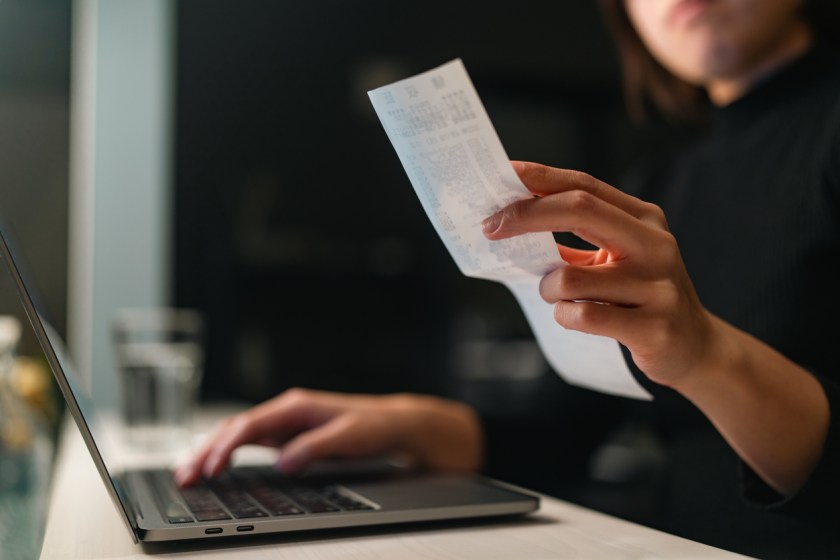Top tax tips for aesthetic professionals to maximise their tax refund this year.
Nobody wants to pay more tax that they have to, and the key to minimising your taxes is to ensure that you claim all the tax deductions you’re entitled to. If you’re an aesthetic professional, there’s a long list of potential tax claims that might apply to you.
We caught up with Mark Chapman, Director of Tax Communication at H&R Block, for his valuable insight into what is worth considering come end of financial year. Not all of them will apply to everyone – but it will pay to spend a bit of time running your eyes down this list to see which of them apply to you.
The Golden Rules of Tax Deductions
If you want to make a claim for work-related expenses, you need to follow the three golden rules:
- The expense must relate to your work
- You mustn’t have been reimbursed by your employer
- You must be able to prove that you spent the money. That means that you must keep receipts, invoices or statements to demonstrate that you actually incurred the expense.
H&R Block’s tip is to keep electronic copies of all documentation relating to expenses. Paper receipts get lost or fade, so keeping everything together on your phone or computer will save time and effort when you come to complete your tax return.

Get Help From An Expert
There’s a reason why nearly 70% of people use a tax agent to help them do their taxes. Tax is complicated and stressful, and if you do it yourself – you’re likely to make a mistake. You might claim something you weren’t entitled to and find yourself audited by the ATO, or you might miss out on a deduction you could have claimed but didn’t realise was available to you; which ultimately the end result is a lower refund than you could have got.
Using a tax agent takes away the stress and opens up a whole world of expertise to guide you through the process, so you can be sure you’re claiming everything you’re entitled to. Get expert advice and the fee will generally be more than covered by the bigger refund, and the peace of mind.
Using your car
If you use your car as part of your work, for instance to travel to clients, between jobs, to expos/conferences or to collect supplies, you can claim the costs of your work-related journeys. If you use your own car, either claim 78 cents per kilometre up to a maximum 5,000 kms or keep a logbook and claim your actual expenses. You can also claim for parking, tolls and public transport if you don’t use your car.
You can’t claim the costs of traveling to and from work (the daily commute) though you might be able to make a claim if you’re required to transport bulky equipment, which you can’t safely store at work (TIP: the ATO checks this very closely so make sure you can prove your claim!).
Equipment
You can claim the cost of buying tools and equipment that you use in your job or business. If the item costs $300 or less, you can claim it straight away and if the cost is more than $300, the cost is depreciated over several years.
If you’re in business on your own account, rather than being employed by someone else, you can immediately write off all items of equipment whatever the cost. This could include mobile phones, laptops and bags or briefcases.
You can also claim the cost of insuring work-related equipment.

Self-Education
You can claim the cost of any work-related courses that you undertake, provided that they relate directly to your current role and aren’t intended to boost your skills into a promotion or another role entirely. That could include courses on the latest laser and other treatments. It could also include management training if you supervise staff. Courses run by a university or TAFE could also be relevant. In addition to the cost of the course, you can claim travel costs to and from the course, accommodation and meals if you’re required to sleep away from home, books, stationery and depreciation on computer equipment used in your study.
Clothing
If you’re required to wear a uniform at your workplace, the cost of purchasing the uniform is claimable and you can also claim for the cost of cleaning the uniform. Conventional clothing doesn’t count as a uniform so ideally any garment you claim for should have the business logo on it.
You can also claim for protective items such as gloves, aprons, hats or hair nets, goggles and non-slip shoes.
COVID-19
If you are in an occupation that requires physical contact or proximity with customers or clients, like the aesthetic industry, you can claim a deduction for items that protect you from COVID-19 (and other infectious diseases) such as:
- Gloves
- Face masks
- Sanitiser
- Antibacterial spray.
Other expenses
Don’t forget to claim these expenses if they apply to you:
- The cost of annual subscriptions, including professional association fees and union fees
- The cost of work-related magazines and journals
- The cost of work-related books
Read SPA+CLINIC’s latest issue here:
There are 5 ways you can catch up with SPA+CLINIC
- Our quarterly print magazine, delivered to your door. Subscribe here.
- Our website, which is updated daily with its own completely unique content and breaking news.
- Our weekly newsletter – free to your inbox! Subscribe here.
- Our digital magazine – click here to view previous issues.
- Our social media – see daily updates on our Instagram, Facebook & Linkedin




